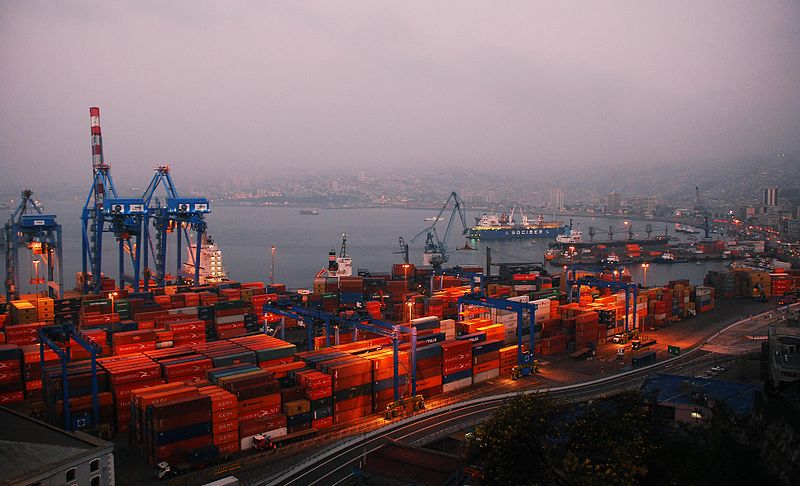oha, Qatar—Bait Al-Mashura Finance Consultations (BAM) has published its annual report on Islamic Finance in Qatar, providing a comprehensive analysis of the performance of Islamic finance institutions in the country during the year 2022. The report assesses the progress of Islamic Banks (IBs), Takaful Insurance companies (TIs), and Islamic Finance and Investment companies (IFIs). Additionally, it examines various Islamic financial products, such as investment funds and sukuk, as well as the overall movement of the Islamic financial market. The report serves as a valuable resource for local institutions, researchers, and individuals interested in Islamic finance, presenting the results of 2022 and incorporating a five-year cumulative study.
According to Prof. Dr. Khalid bin Ibrahim Al Sulaiti, the vice chairman of BAM, Islamic Finance strives to establish an equitable financial system that upholds moral values and fosters economic well-being for individuals and society. Transparency and clarity are crucial pillars for stakeholders engaging in legitimate financial transactions. Consequently, reports that support this purpose by highlighting industry strengths and weaknesses, development areas, and innovation play a vital role. Bait Al-Mashura is committed to reinforcing these principles, considering them as fundamental starting points for researchers, interested parties, and institutions. Through our series of reports, research, and studies, we aim to provide a comprehensive understanding of Qatar’s Islamic finance sector and offer a forward-looking vision for its future.
Dr. Al Sulaiti also noted that the Qatari economy exceeded expectations in 2022, growing at a rate of 4.8%. The Planning and Statistics Authority in Qatar estimates that the country’s GDP, measured at constant prices (2018), reached QR690.1 billion, marking an increase from QR658.3 billion in 2021. At current prices, the GDP surged to QR863.8 billion, reflecting a remarkable 32% rise compared to the previous year. The projected GDP growth rate for the fiscal year 2023 is expected to surpass 3%. The financial and insurance activities sector played a significant role in driving GDP growth, accounting for 8.1% of the total. This amounted to QR70.4 billion at current prices, representing a growth rate of 11.9% compared to the previous year’s QR62.9 billion.
The Islamic Finance in Qatar Report for 2022 unveiled that Qatar successfully hosted the FIFA World Cup, which had a profound impact on various sectors of the economy. The government’s financial and economic policies, coupled with its commitment to controlling the financial and banking sector while diversifying economic activities, enabled Qatar to withstand the economic and banking fluctuations experienced globally in 2022.
According to the Islamic Finance in Qatar Report, the total value of Islamic finance assets in Qatar grew by 6.5% in 2022, reaching QR635 billion ($174 billion). Islamic banks accounted for 87% of these assets, while Islamic Sukuk accounted for 11.3%.
The report delved into the growth of assets in different sectors. Islamic banks’ assets grew by 7.3% in 2022, reaching QR544.3 billion, with deposits increasing by 1.6% to QR317.8 billion. Private sector deposits accounted for 54% of the total. Financing witnessed a significant growth of 12.3%, amounting to QR380.5 billion, primarily driven by investments in the real estate and government sectors, followed by personal finance. Revenues increased by 18.1% and reached QR23.3 billion, resulting in profits of approximately QR7.7 billion with a growth rate of 2.8%.
In the Takaful insurance sector, Takaful insurance companies’ assets amounted to approximately QR5 billion, marking an 11.9% growth, while policyholders’ assets reached approximately QR2.6 billion, reflecting an 8.9% growth. Insurance contributions increased by 9.3%, reaching QR1.5 billion. Takaful insurance companies experienced varied performance, with some achieving insurance surpluses of approximately QR73.4 million and others facing insurance deficits of QR5.7 million.
As for Islamic finance companies, their assets amounted to QR2.5 billion, a slight decline of 1.9%. Financing provided by these companies decreased by 3.3% to QR1.69 billion, while revenues amounted to QR224.5 million, representing a 2% increase. Approximately 90% of the total revenues came from financing and investment activities. The performance of Islamic finance companies varied, with some reporting profits exceeding QR125.7 million and others incurring losses of approximately QR8 million.
Islamic investment companies experienced a 1.3% growth in assets, amounting to QR509 million, while revenues surged by 52.8% to QR62.3 million, resulting in profits exceeding QR16 million.
Islamic Sukuk issuance declined by 48% in 2022, primarily due to Islamic banks halting their Sukuk issuance activities. However, Qatar Central Bank issued Sukuk worth QR5.4 billion during the year, a decrease of 29% compared to 2021.
The assets of Islamic investment funds slightly decreased by 0.9%, reaching over QR910 million, with performance varying throughout the year.
On the Qatar Stock Exchange, the Al Rayan Islamic index closed down by 2.66%, while shares of listed Islamic finance companies experienced diverse performance, ranging from a 13% increase to a 36% decrease.
The report unveiled that Qatar’s Islamic finance sector comprises four main sectors: Islamic banks, Takaful insurance companies, Islamic finance companies, and Islamic investment companies. Additionally, it highlights Islamic finance products, including Islamic Sukuk, investment funds, and indices. These institutions operate under the direct supervision of the Qatar Central Bank, and some conduct Islamic finance activities within the framework of the Qatar Financial Center.
The report emphasized that Qatar’s banking sector encompasses four Islamic banks out of sixteen, in addition to four conventional domestic commercial banks, Qatar Development Bank (a specialized bank), and seven branches of conventional foreign banks. QInvest, Qatar First Bank (QFB), and Abu Dhabi Islamic Bank (Qatar branch) operate in the field of banking and Islamic investment banking under the supervision of the Qatar Financial Center Authority. Qatari Islamic banks maintain a network of more than 66 branches, both within the country and internationally.
Within the insurance sector, several companies operate under the supervision of the Qatar Central Bank, including five independent Takaful insurance companies: Qatar Islamic Insurance Company, Alkhaleej Takaful Insurance Company, Damaan Islamic Insurance (Beema), General Takaful Company of the General Insurance and Reinsurance Company, and Doha Takaful Company of Doha Insurance Group. Additionally, five national domestic insurance companies and four branches of foreign conventional insurance companies, along with representatives of three domestic insurance companies, are active in the sector.
Similarly, three Islamic finance companies, as well as a few investment companies and five Islamic Investment Funds, operate under the umbrella of the Qatar Central Bank. These funds are active both within and outside of Qatar, along with the QE Al Rayan Islamic Index. The index serves as an indicator of total return, incorporating share price performance, income from reinvestment, and dividends distributed by listed companies.
![]()






